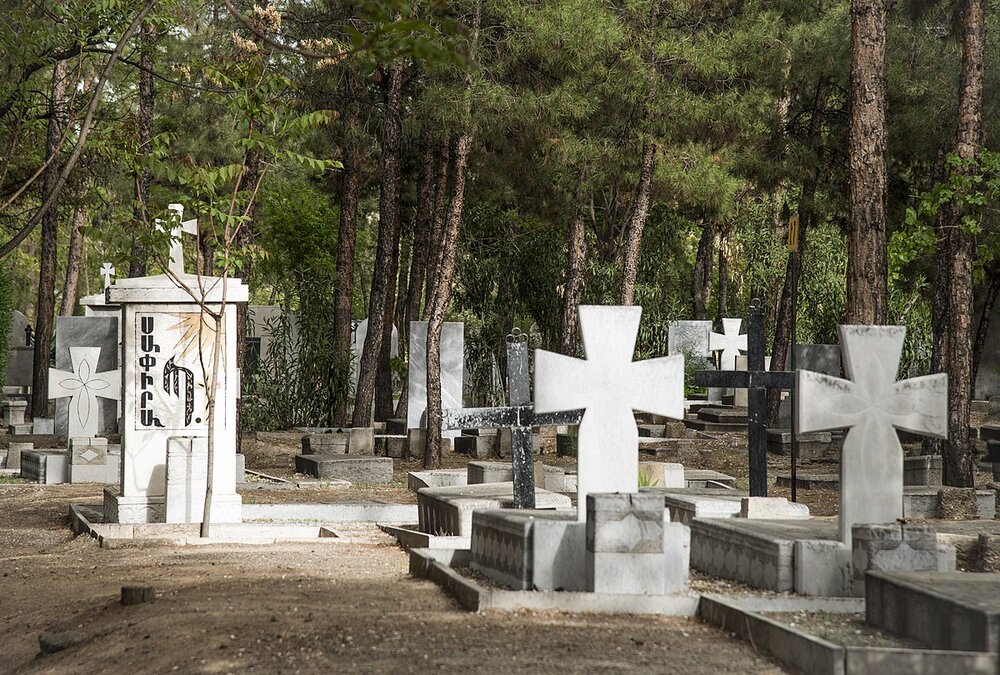Armenian cemetery in Isfahan, a potential tourist destination: official

TEHRAN—The centuries-old Armenian cemetery in the central province of Isfahan holds the potential to become a top tourist destination, the provincial tourism chief has said.
Nearly 120,000 Iranian-Armenian, foreign citizens, and scientists from more than 12 countries are buried in this cemetery during the past 400 years since New Julfa was formed, Alireza Izadi explained on Monday.
However, evidence and documents indicate that this cemetery has a history dating back over 500 years, he noted.
This cemetery could be turned into one of the main tourist centers in the southern part of Isfahan because of the life stories of those who are buried in it and the contributions they have made to the development of the culture and civilization of the region, the official added.
Soaked in a rich history, Isfahan was once a crossroads of international trade and diplomacy in Iran and now it is one of Iran’s top tourist destinations for good reasons.
It is filled with many architectural wonders, such as unmatched Islamic buildings, bazaars, museums, Persian gardens, and tree-lined boulevards. It’s a city for walking, getting lost in its amazing bazaars, dozing in beautiful gardens, and meeting people.
The ancient city is renowned not only for the abundance of great historical bridges but also for its ‘life-giving river’, the Zayandeh-Rood, which has long bestowed the city an original beauty and fertility.
Isfahan has long been nicknamed as Nesf-e-Jahan which is translated into “half the world”; meaning seeing it is relevant to see half the world. In its heyday, it was also one of the largest cities in the region with a population of nearly one million.
The cool blue tiles of Isfahan’s Islamic buildings, and the city’s majestic bridges, contrast perfectly with the encircling hot, dry Iranian countryside.
The huge Imam Square, best known as Naghsh-e Jahan Sq. (literary meaning “Image of the World”), is one of the largest in the world (500m by 160m), and a majestic example of town planning. Constructed in the early 17th century, the UNESCO-registered square is punctuated with the most interesting sights in Isfahan.
Modern Isfahan is home to some heavy industry, including steel factories and a nuclear facility on its outskirts. However, its inner core wants to be preserved as a priceless gem.
The city is also home to a gigantic, professional, and state-of-the-art healthcare city, which is a major destination in the realm of medical tourism.
ABU/AM
